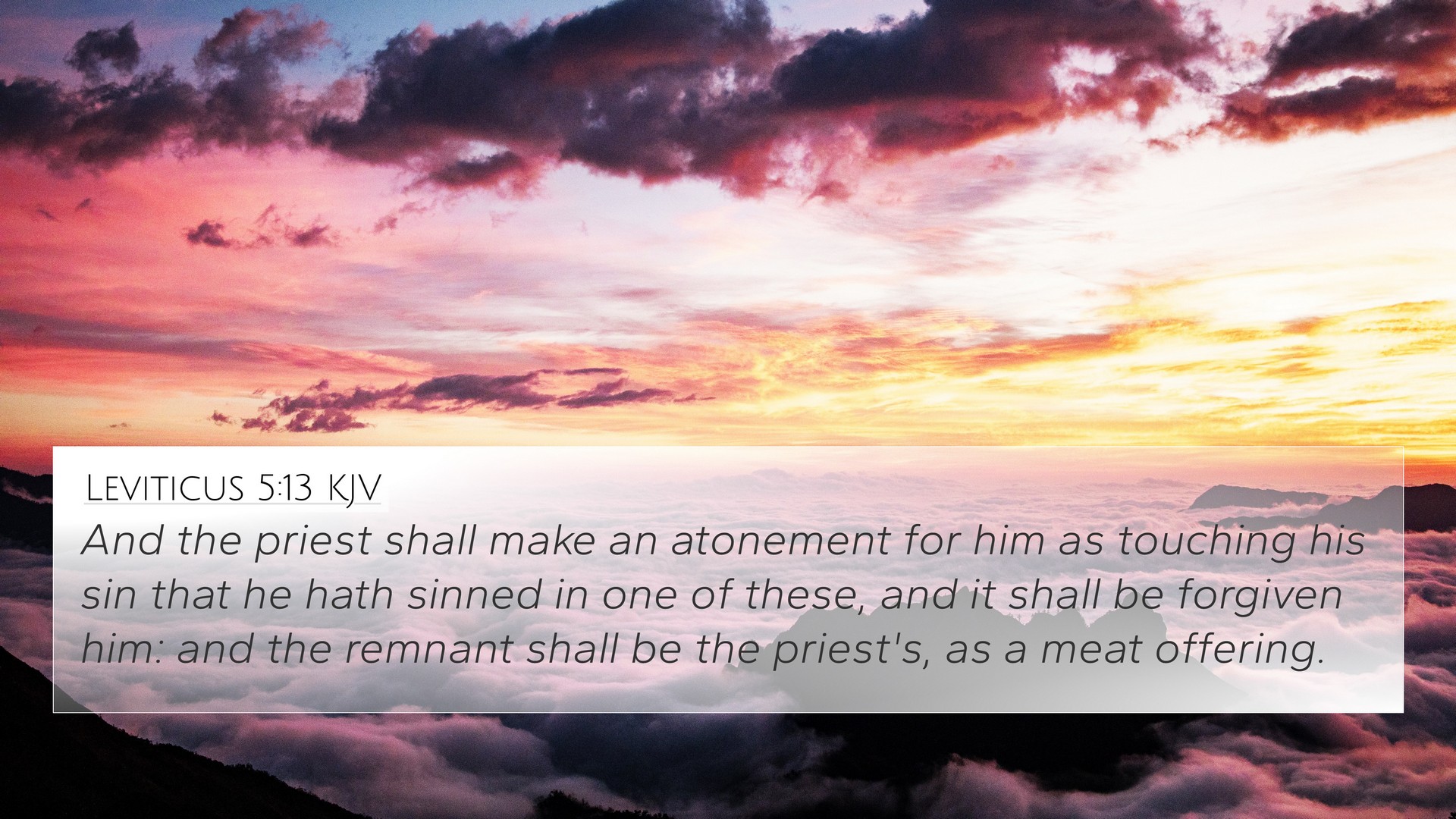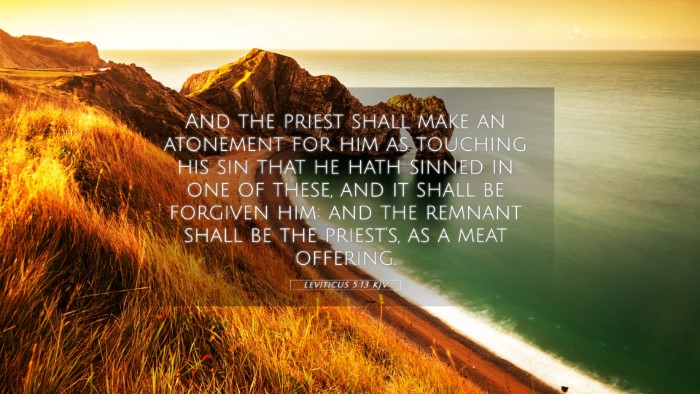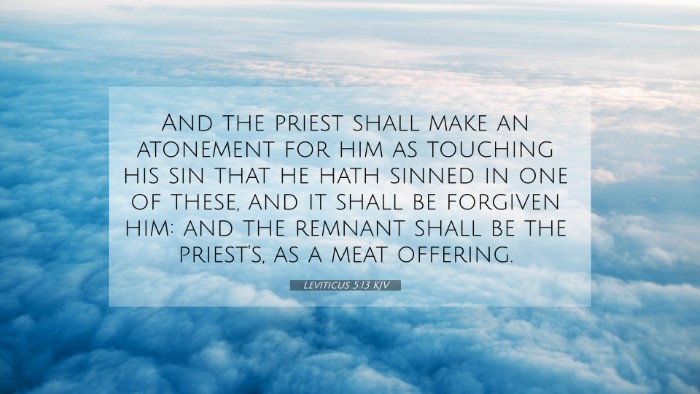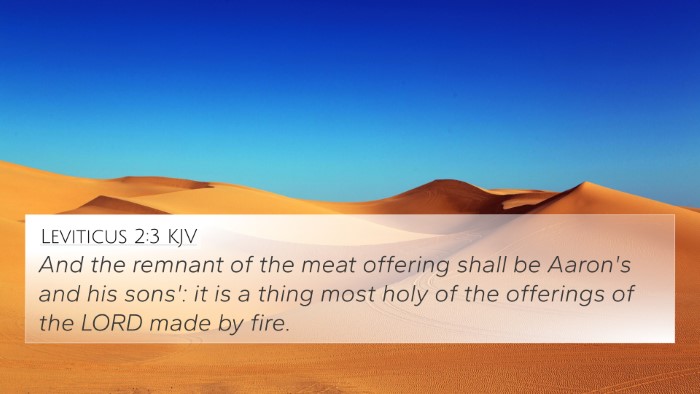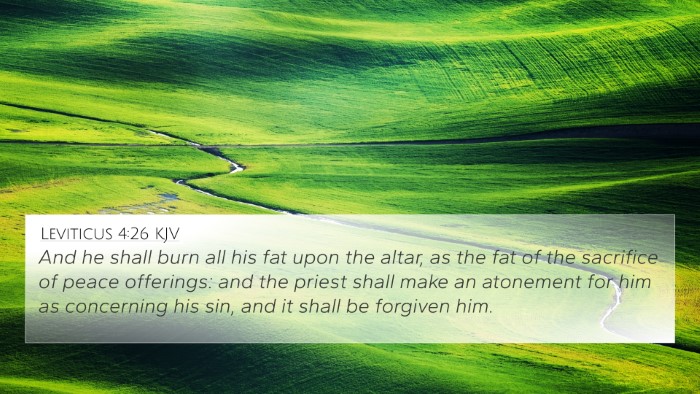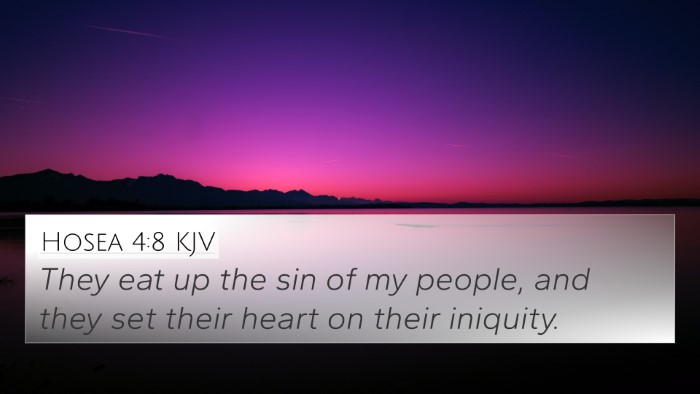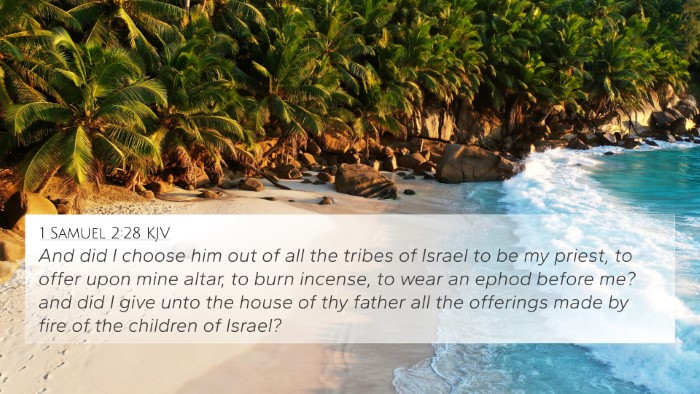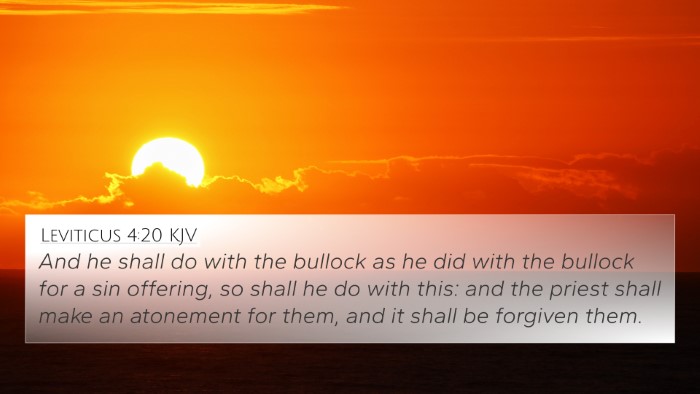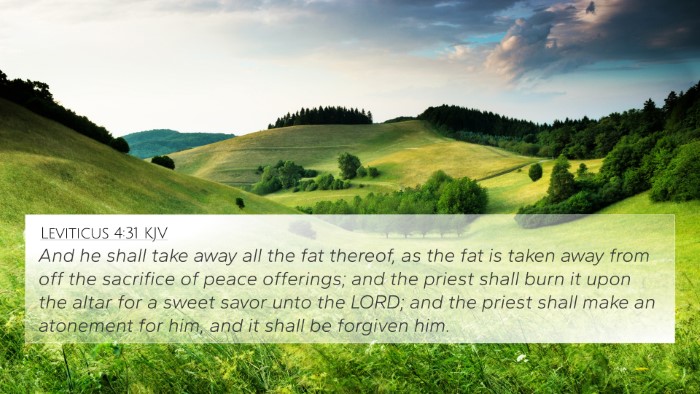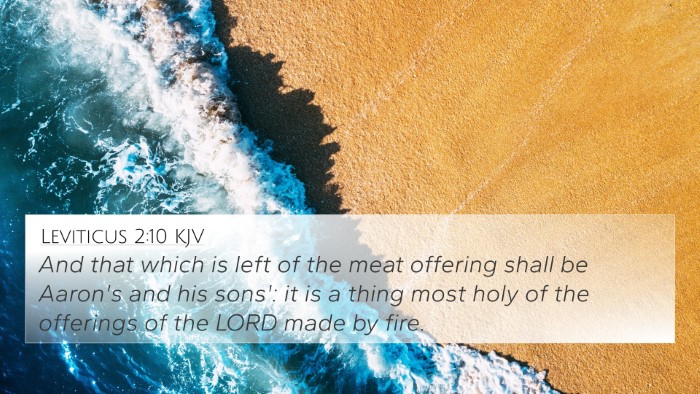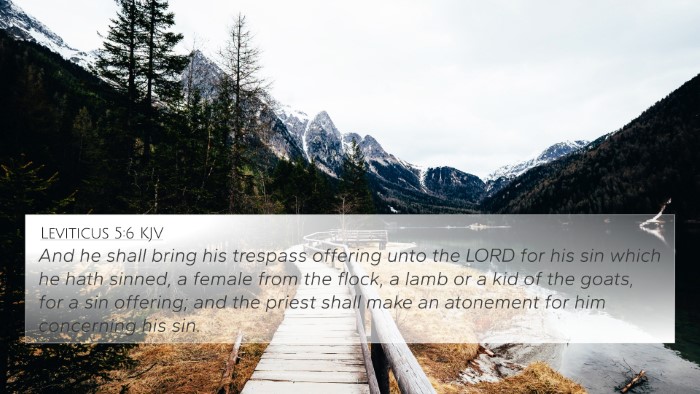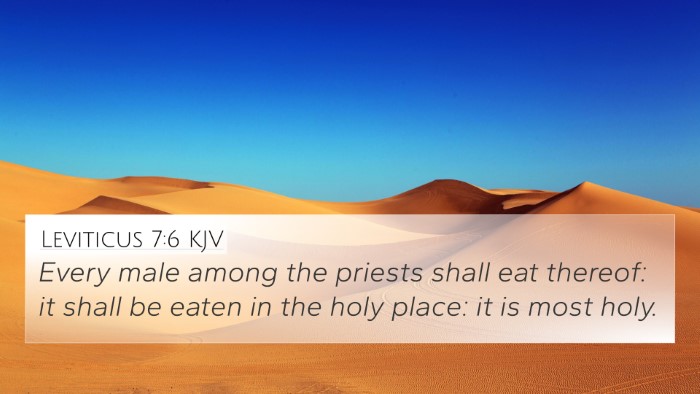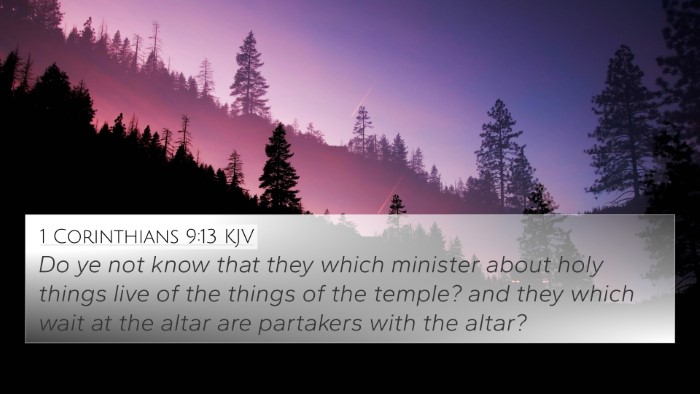Understanding Leviticus 5:13
Leviticus 5:13 states:
"And the priest shall make an atonement for his sin that he hath sinned in one of these, and it shall be forgiven him: and the remnant shall be the priest's, as a meat offering."
Summary of Meaning
This verse is pivotal in understanding the concept of atonement in the Levitical system. Through the insights from various commentaries, we can see a multifaceted approach to interpreting this scripture.
Insights from Commentaries
-
Matthew Henry: Henry emphasizes that this verse demonstrates God's provision for forgiveness through sacrificial offerings. It highlights God’s readiness to forgive when the acknowledgment of sin is made.
-
Albert Barnes: Barnes points out the importance of atonement and how it's indicative of the sacrificial system, which anticipates the ultimate sacrifice of Christ. He discusses the priest's role in mediating between God and the sinner.
-
Adam Clarke: Clarke discusses the idea of the priest receiving the meat offering as a means of support for the priestly family, thus linking the communal aspect of worship with personal sinfulness and atonement.
Thematic Connections
Leviticus 5:13 serves as a springboard for understanding broader themes within the Bible, particularly themes of sin, atonement, and divine mercy.
Cross-References
This verse resonates with several other scriptures:
- Hebrews 9:22: "And almost all things are by the law purged with blood; and without shedding of blood is no remission." - Ties the acts of the Old Testament to the New Testament's teaching on sacrifice.
- Leviticus 4:20: "And he shall do with the bullock as he did with the bullock for a sin offering, so shall he do with this." - Further detailing the atonement process.
- 1 John 1:9: "If we confess our sins, he is faithful and just to forgive us our sins, and to cleanse us from all unrighteousness." - The New Testament reiteration of God’s forgiveness upon confession.
- Romans 3:23-26: Highlights the universality of sin and the justification through faith in Jesus Christ.
- Isaiah 53:5: "But he was wounded for our transgressions, he was bruised for our iniquities: the chastisement of our peace was upon him; and with his stripes, we are healed." - A prophetic connection to Christ’s sacrificial role.
- Leviticus 7:30: "His own hands shall bring the offerings of the Lord made by fire..." - Reinforces the personal aspect of bringing offerings.
- Matthew 5:23-24: Jesus teaches on the importance of reconciliation before offering gifts at the altar, paralleling the significance of coming before God free of sin.
Application and Reflection
In reflecting on Leviticus 5:13, one might consider how this sacrificial system translates into the Christian life today, particularly the themes of confession, atonement, and the communal aspects of faith. The understanding of sacrifice, as brought about in the Levitical laws, lays the foundation for a deeper appreciation of the work of Christ. Through careful exegetical study and cross-referencing these scriptures, believers can come to a more profound understanding of their relationship with God and the nature of forgiveness.
Tools for Further Study
To delve deeper into the connections between Bible verses and enhance your Bible study experience, consider utilizing:
- Bible Concordance: Useful for finding specific verses linked by themes or topics.
- Bible Cross-Reference Guide: A guide that illustrates the interrelationship of scripture passages.
- Cross-Reference Bible Study: Engaging in studies that focus specifically on the links between disparate verses.
- Bible Chain References: Following a chain of related scriptures that build upon one another.
Conclusion
Leviticus 5:13 not only informs readers of God's requirements for atonement but also connects richly with New Testament themes of grace, mercy, and redemption. By exploring the connections and employing various study tools, believers can deepen their understanding of the scriptures and enrich their faith journey.
